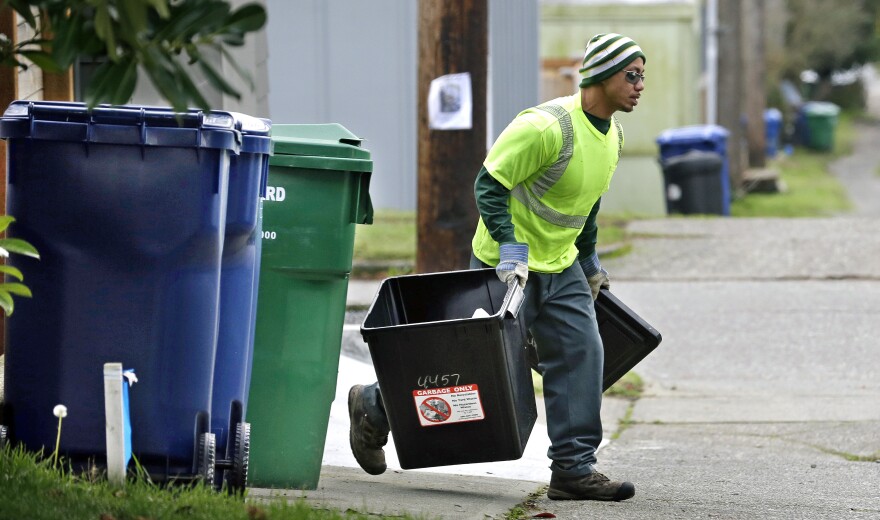The city of Biddeford can now revoke recycling services from residents who repeatedly contaminate their recycling bins with trash.
Under an ordinance passed earlier this month, households will get two warnings if the city finds non-recyclable items in a recycle bin. On the third violation within 12 months, the city will no longer collect their recycling each week.
At a city council meeting earlier this month, Public Works Director Jeff Demers said that the department has worked to educate residents on what items can be recycled, and what items go into the trash. But despite that, he says a recent audit showed a recycling contamination rate of nearly 20 percent.
If that rate goes up, Demers said it could cost the city tens of thousands of dollars in extra fees.
"This is one place that's very important to us. Because we know, come budget time, come the way the budget's run, $50,000 is a lot of money to us in the public works department," Demers said.
Demers said that the city has particularly had an issue with big, heavy objects -- including a bowling ball and brake rotor -- that have ended up in recycling bins.
"That rotor that weighs 30 pounds, or 20 pounds, or that bowling ball -- I just use them as examples. A sandbag, a full sandbag we found in one. That adds up, and that really hurts our contamination," he said.
The new ordinance will go into effect next month.



